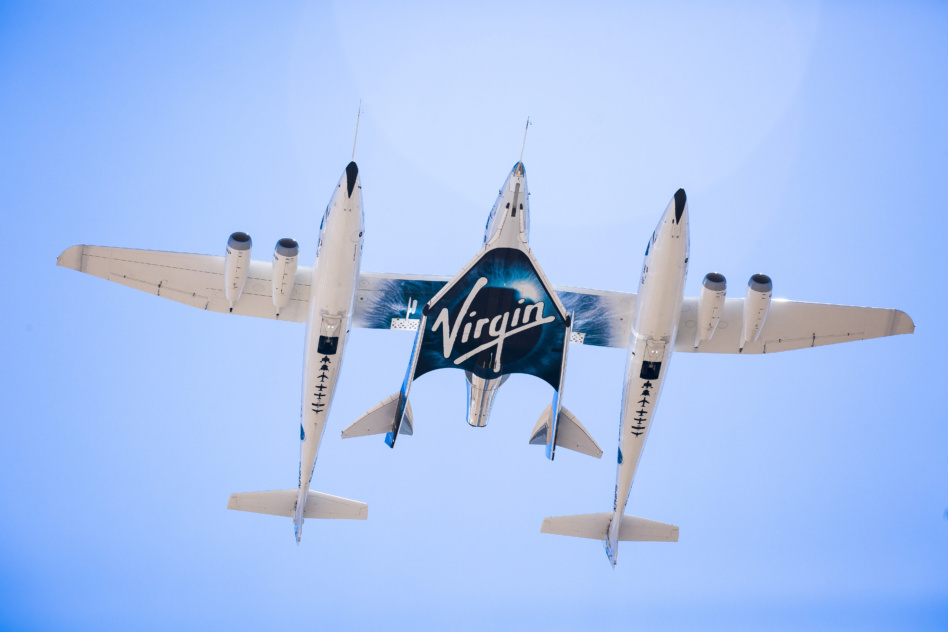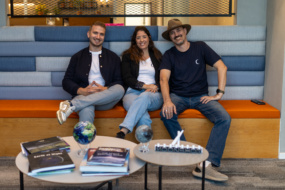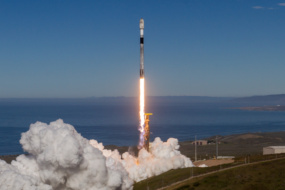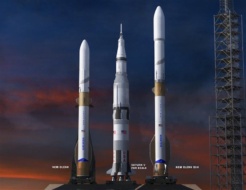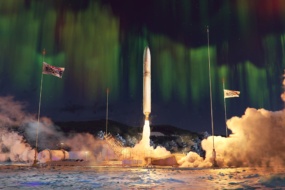Virgin Galactic took to the skies yesterday, launching the final VSS Unity test flight before beginning commercial service.
The Unity 25 mission tested the ship’s technical function as well as the astronauts’ experience. This was the company’s first spaceflight in nearly two years after a pause for an FAA investigation and fifth in total. The first commercial mission is slated for late June.
Mission recap: The carrier aircraft, VMS Eve, flew the VSS Unity spacecraft to an altitude of 40,000 feet, where it released the spacecraft just after noon ET. VSS Unity then fired its own rocket engines and traveled beyond the boundary of space at ~286,176 feet.
- It landed at 12:37pm ET at Spaceport America in New Mexico.
- The company did not publicly livestream the launch, but viewers were able to watch live via NASA Spaceflight’s stream.
The crew: VSS Unity is designed to hold up to eight crew members—six passengers and two pilots—but only flew with six. The entire crew consisted of Virgin Galactic employees, including the first female astronaut from New Mexico.
- Mike Masucci and CJ Sturckow piloted VSS Unity. Passengers included Beth Moses, Luke Mays, Christopher Huie, and Jamila Gilbert.
- Jameel Janjua and Nicola Pecile commanded VMS Eve.
Space tourism: Blue Origin is currently the only company regularly offering a commercial space tourism service on its New Shepard capsule. However, Virgin Galactic is next in line. The launcher plans to commence construction of the new Delta class spaceships this year, which are intended to pick up the pace of flights with a more easily manufacturable design.
The bigger picture: This launch was crucial for Virgin Galactic’s tourism bid. The company has suffered a number of setbacks and delays in developing its spaceflight vehicles. Serving as the final assessment before launching paying customers, this test was a key indicator on the path to revenue as quarterly burn continues to increase.
Virgin Galactic has sold ~600 reservations for future flights priced at $200,000-$250,000 each. Ticket sales now begin at $450,000 per seat.
+ Market check: Despite the mission’s success, Virgin Galactic’s stock dropped 8% yesterday by market close.
